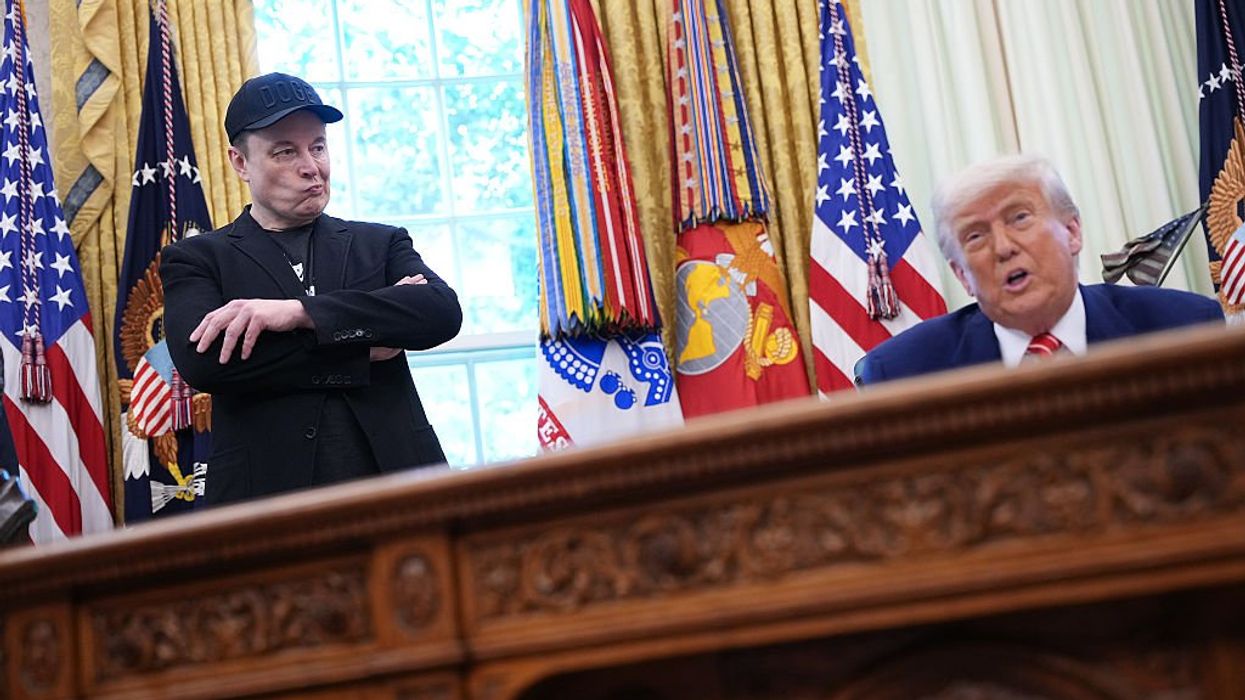The relationship between President Donald Trump and Elon Musk has come to a dramatic end. An alliance that took off like one of SpaceX’s rockets has now crashed and burned.
Days of increasing tensions over government contracts and political issues culminated on Thursday.
Without offering any proof, Musk claimed on X that the Trump administration hasn’t released all the records related to sex abuser Jeffrey Epstein because Trump is mentioned in them.
Trump, who uncharacteristically had been quiet, fired back yesterday in the Oval Office, saying he was “very disappointed in Musk.”
Then he turned up the heat on his own social media network, Truth Social, stating, “The easiest way to save money in our Budget, Billions and Billions of Dollars, is to terminate Elon’s Governmental Subsidies and Contracts."
Hours later, Musk announced that SpaceX would start phasing out the spacecraft it has used to transport astronauts and cargo to the International Space Station for NASA.
The growing rift between Trump and Musk has had a notable financial impact. Following Trump's criticisms, shares of Tesla, Musk's electric vehicle company, fell more than 14%, resulting in a loss of approximately $150 billion in Tesla's market valuation. Consequently, Musk's personal holdings in the company decreased by about $20 billion.
Musk remarked in a post, “Without me, Trump would have lost the election," and followed up with the comment, "Such ingratitude.” Notably, he had invested at least $250 million in support of Trump's re-election campaign reported the Associated Press.
Once Trump was elected, the tech billionaire appeared to enjoy the spoils of his investment by standing prominently behind him as he took the oath of office, was appointed to lead the Department of Government Efficiency (DOGE), flew on Air Force One for weekend stays at Mar-a-Lago, slept in the Lincoln Bedroom, and joined Cabinet meetings wearing MAGA hats.
However, Musk stepped down last week from his official senior adviser role at the White House.
While Trump praised Musk for his service then, he recently texted that Musk was “wearing thin,” that he had “asked him to leave” his administration, that the tech titan had “gone CRAZY.”
Both figures have made strong statements about each other, highlighting how quickly political and business relationships can change in the public eye.
Here's part of a timeline of the Musk and Trump feud produced by CNN :
June 3: Musk posts that the “massive, outrageous, pork-filled Congressional spending bill is a disgusting abomination.”
June 4: Trump posts an image on Truth of Musk’s post announcing he’s leaving the government.
June 5: Trump confirms the deterioration of his relationship with Musk, saying he was “very disappointed” in the tech billionaire after he repeatedly blasted the president’s sweeping domestic agenda bill.
Musk claims that without him, Trump would have lost the election.
Trump claims he asked Musk to leave the administration and took away his "his EV mandate," after which he alleges Musk "just went CRAZY!"
Trump posts that the US government could save billions of dollars in its budget by terminating the contracts and subsidies awarded to Musk’s companies.
Musk claims Trump is "in" the Jeffrey Epstein files.
Musk agrees with an X user calling for Trump’s impeachment.
Musk claims Trump’s tariffs will cause a recession.
The Trump-Musk flameout reflects broader themes in the complex interplay between technology, politics, and personal relationships in today's society.
Hugo Balta is the executive editor of the Fulcrum and a board member of the Bridge Alliance Education Fund, the parent organization of The Fulcrum. He is the publisher of the Latino News Network and an accredited Solutions Journalism and Complicating the Narratives trainer with the Solutions Journalism Network.




















